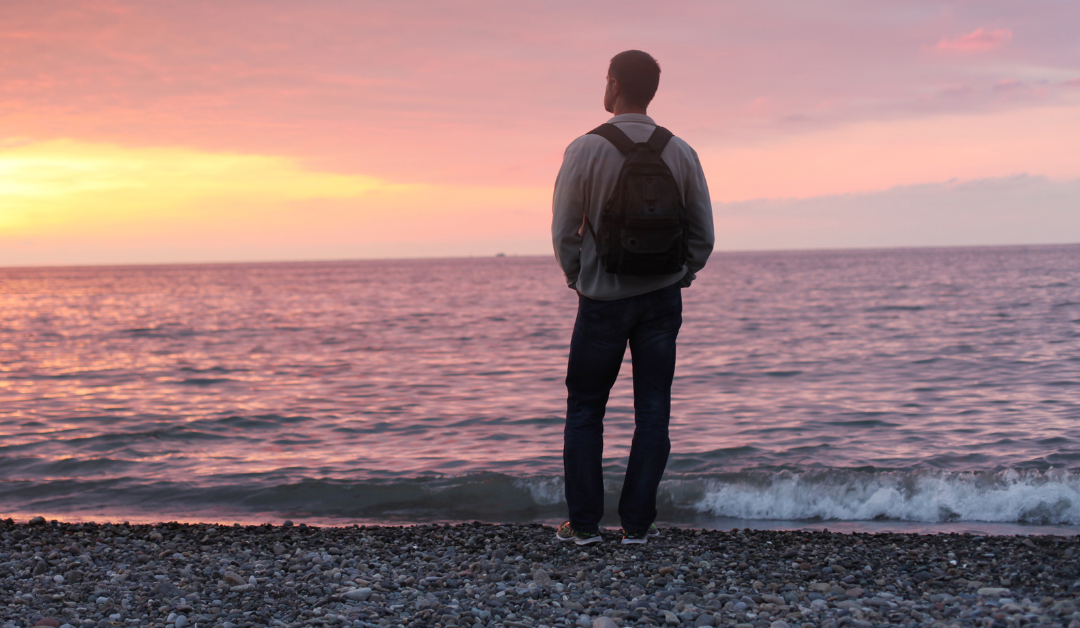The fear of being alone. For some people, it’s that creeping sense of dread when the house is empty, or even a tinge of unease when they’re just out and about by themselves.
Feeling this way isn’t unusual, but it can really get in the way of enjoying life and, well, enjoying *yourself*.
Let’s break down where this fear of being alone comes from and share a few ways to work through it so you can start finding peace, comfort, and maybe even joy in those quiet solo moments.
Why the Fear of Being Alone Hits So Hard
There’s a lot more to the fear of being alone than simply not wanting to be lonely.
Most of us are naturally wired to crave connection and companionship—going back to a time when being part of a group literally meant survival.
But fast-forward to today, and while we’re not running from saber-toothed tigers anymore, our brains still find comfort in company.
But for some, this fear of loneliness can feel almost overwhelming, linked to things like:
- Fear of Vulnerability: For some, being alone brings up feelings of being unsafe or vulnerable, leading to unease that something bad might happen without anyone to help.
- Emotional Triggers from the Past: Negative experiences with abandonment, isolation, or loneliness at a young age can make the fear of ending up alone even stronger as adults.
- Lack of Trust in Oneself: If you’re feeling unsure about your own ability to manage things, the idea of being alone can sometimes feel a bit intimidating, even when there’s nothing specific to worry about.
Symptoms of the Fear of Being Alone
Wondering if your worries go beyond just not enjoying solo time? Here are some common ways the fear of being alone can show up in your daily life:
- Anxiety or Panic When Alone: If you find yourself getting genuinely anxious or even panicky when you’re alone, that could be a sign that your fear of being alone is more than just a preference.
- Difficulty Enjoying Alone Time: Maybe there are activities you typically enjoy, but when alone, it’s like they lose their shine or just feel too quiet.
- Dependence on Others for Reassurance: Relying heavily on constant contact with others—whether through texts, calls, or face-to-face company—could be a way to keep the fear of being alone at bay.
- Avoiding Solo Situations Altogether: If you often find yourself scheduling back-to-back plans or diving into relationships quickly just to avoid solo time, this may be worth noting.
6 Ways to Embrace Being Alone and Work Through the Fear
Let’s get into some ways to start tackling this fear of loneliness so that it becomes less scary and more of a chance to find comfort in your own company.
1. Ease Into Alone Time Gradually
If you’re used to filling every minute with company, start by giving yourself a few minutes of alone time each day.
Try setting aside 10 minutes of just “me time” and gradually build from there. Learning to sit with yourself—without distraction—can help ease the fear what it’s like to be alone little by little.
2. Focus on Self-Care Activities
Think of solo time as a chance to focus on you.
Use it to dive into things that genuinely make you feel good and cared for. Whether it’s reading, doing a face mask, or just going for a walk, these moments can help you associate being alone with comfort and calm, rather than with fear.
3. Challenge Your Thoughts
When the fear of loneliness starts creeping in, try to recognize and challenge it.
Are you jumping to conclusions or imagining worst-case scenarios? Remind yourself that you’re safe, and try to redirect your thoughts to the present moment.
You’re capable, and you’re doing just fine on your own.
4. Try Out Mindfulness Practices
A few minutes of deep breathing, mindfulness, or meditation can go a long way in calming the mind when alone. Mindfulness helps you stay in the moment instead of letting the fear of being alone bring in worries about what-ifs or past hurts.
5. Build a Solo Hobby
Developing a hobby that you can do solo can be a game-changer for the fear of being alone.
It could be painting, journaling, cooking, or even just listening to your favorite music and dancing like nobody’s watching (because no one is!).
Hobbies bring focus and joy, making alone time feel rewarding.
6. Use Positive Affirmations
Sometimes, overcoming the fear of loneliness means building up a little more self-confidence.
Positive affirmations like “I am safe and content in my own company” or “I am enough on my own” can help shift your mindset over time.
When Fear of Loneliness Turns Into Autophobia
For some, the fear of being alone can become something more serious, like autophobia—an intense, irrational fear of being alone that leads to panic.
If being alone triggers extreme anxiety or impacts your quality of life, consider reaching out to a mental health professional.
They can help you develop effective strategies to work through this fear and gain confidence in solitude.
FAQs About the Fear of Being Alone
- Why do I get scared when I’m alone?
The fear of being alone can stem from feeling vulnerable or anxious when there’s no one around. Often, this is due to our natural social needs, past experiences, or self-doubt.
- Is it normal to fear living alone?
Yes, it’s perfectly normal to feel nervous about living alone, especially if it’s new. The fear of being alone is common and can be managed with time and practice.
- How to get rid of autophobia?
Dealing with autophobia, or a serious fear of being alone, often requires a combination of self-work and professional support. Therapy can help you explore the root causes of your fears and develop ways to feel more comfortable alone.
- How to handle anxiety when you’re alone?
To manage anxiety when you’re by yourself, try mindfulness techniques, grounding exercises, or engaging in solo hobbies that keep you calm and focused. Over time, you can work on reframing the fear of being alone as a chance for personal growth.
- Is fear of being alone a sign of low self-esteem?
In some cases, yes. The fear of being alone can be tied to feelings of insecurity or self-doubt. Building self-confidence and practicing self-compassion can help you feel more at ease in your own company.
So, if the fear of being alone has been holding you back, you’re definitely not alone in this (ironically enough).
Facing this fear takes time and patience, but it’s worth it to feel comfortable in your own skin, at peace in your own space.
You deserve to feel content and at ease, whether you’re in a crowd or by yourself.
Mental Health Therapy In North Carolina
Schedule Your Free ConsultationContact Acacia Collaborative
Ask a question or book an appointment below.
Hours
Monday through Friday
9AM-8PM
Saturday: 9AM-3PM
Durham Office:
3710 University Drive #302, Durham, NC 27707
Cary Office:
570 New Waverly Pl #210, Cary, NC 27518
Online Therapy
All of North Carolina
Insurance
Accepting Aetna, Blue Cross Blue Shield, State Health Plan, Out-of-Network Superbills & Private Pay
Services
Mental Health Therapy & Psychological Assessments

